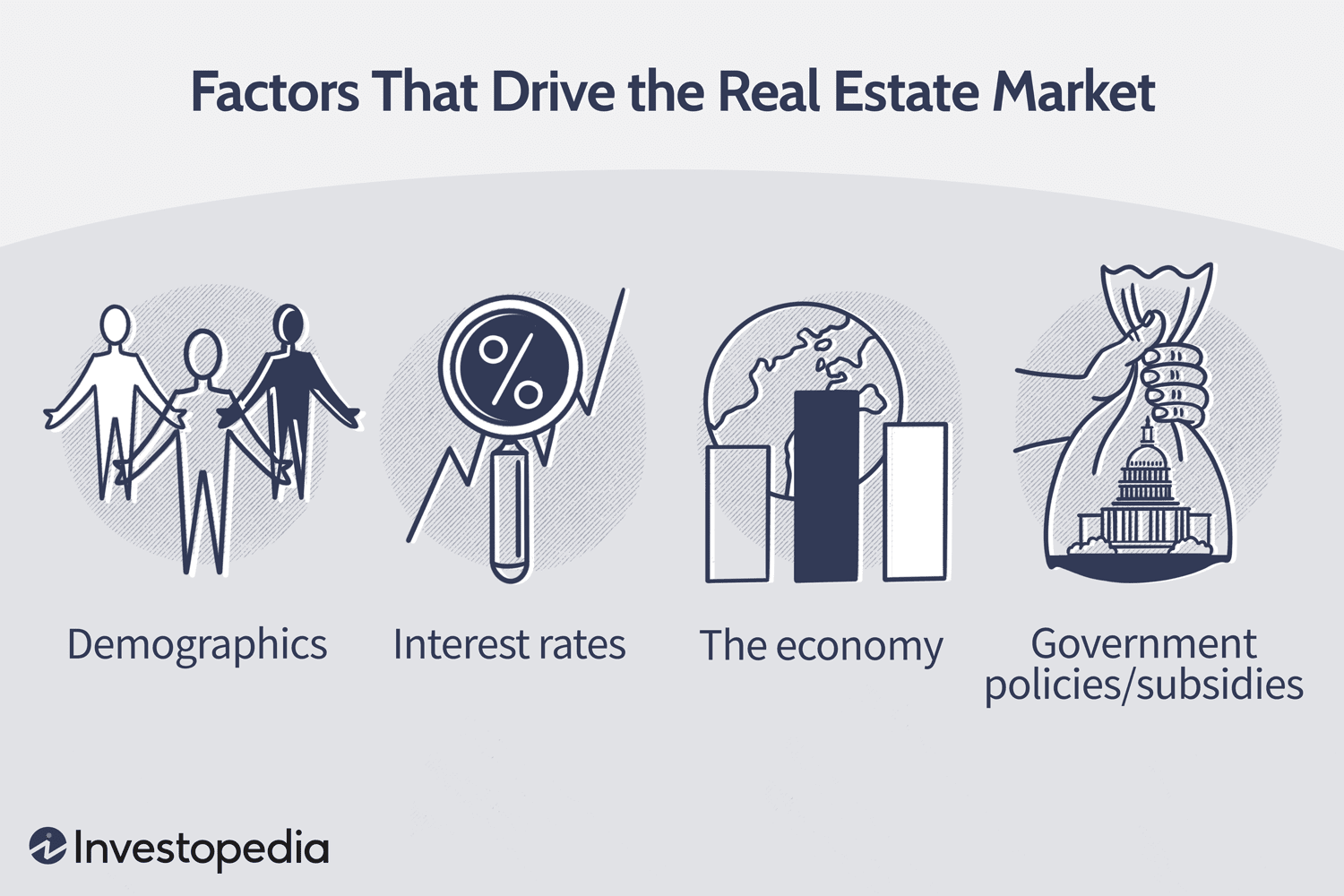How to Invest in Real Estate
The size and scale of the real estate market make it an attractive and lucrative opportunity for many investors. Individuals can invest directly in actual real estate or indirectly through managed funds.
Investing directly in real estate involves purchasing a residential or commercial property to use as an income-producing property or to sell at a future time.
Indirect ways to invest in the real estate market include investing in real estate investment trusts (REITs), real estate exchange-traded funds (ETFs), commingled real estate funds (CREFs), and infrastructure funds. Due to greater liquidity, lower transaction costs, and lower capital requirements, average investors prefer to invest indirectly in real estate.6
What Factors Affect the Price of a House?
Comparable home values, the age, size, and condition of a property, neighborhood appeal, and the health of the overall housing market can affect home prices.
What Is the Biggest Threat to the Real Estate Industry?
A weakening economy or recession may be the biggest threat, due to the potential for people to lose their jobs and for household income to drop. This can not only squelch demand but also may make it difficult for people (and companies) who own properties to continue paying their mortgages.
How Does Inflation Impact the Real Estate Market?
It can cause property prices to increase. That’s because, as construction costs rise with inflation, fewer businesses can afford to build new units. This limits supply, which, if demand for properties persists, puts upward pressure on values.
The Bottom Line
This article introduced four of the high-level factors that play a significant role in moving the real estate market. And although some of these factors suggest a clear-cut relationship between cause and effect, in practice, the results can be very different.
However, for investors, understanding the key factors that drive the real estate market is essential to a comprehensive evaluation of a potential investment.



